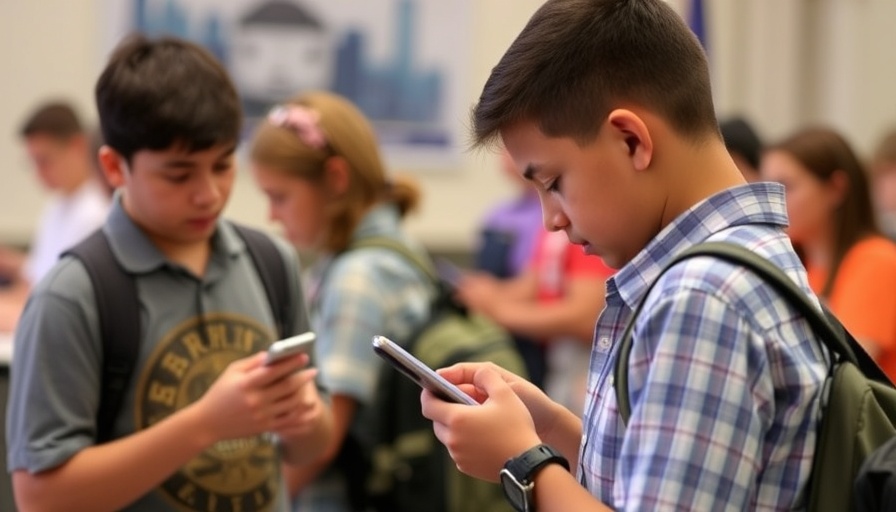
Texas Schools Embrace New Era of Focus With Device Ban
As Texas students return to the classroom this fall, they are facing a significant shift in school policy aimed at enhancing concentration and reducing distractions. The new state law, effective immediately, prohibits the use of personal electronic devices, including cell phones and smartwatches, throughout the school day—from the first bell in the morning to the final bell in the afternoon. This bold initiative is more than a simple directive; it represents a broader commitment to improving educational outcomes by minimizing interruptions.
Removing Distractions: The Rationale Behind the Law
Educators across the state, including Dr. Kalee McMullen from Grapevine-Colleyville ISD, have long noted that the proliferation of smartphones has created a challenging environment in classrooms. "Notifications and constant calls are distractions that undermine the learning experience," McMullen explains. With provisions allowing for exceptions only in medical emergencies, the law seeks to ensure students engage fully with the educational process, thus improving their focus and retention of knowledge. Past implementations of similar policies have shown positive results, prompting this state-wide overhaul.
A Wave of Support Among Educators
The new law has garnered widespread support among teachers and school administrators. Many North Texas districts had previously adopted semi-restrictive policies, mandating that devices be put away during instructional time, but the law extends these restrictions to lunch and passing periods as well. Arlington, Garland, Mesquite, and other districts have solidified an “out of sight” policy requiring students to keep devices powered off and stored away during the entire school day.
Vital Research on the Impact of Device Use
The rationale behind such bans isn't merely anecdotal. Numerous studies underscore the detrimental effects of constant connectivity on learning and cognitive performance. Research has indicated that students distracted by digital devices tend to perform worse academically. This new policy aligns with increasing evidence showing that students may benefit from decreased screen time, leading to better focus and academic achievement. Teachers have reported observed increases in student engagement post-implementation of device bans in their classrooms, hinting at the potential effectiveness of statewide legislation.
Challenges and Opportunities Ahead
While the intention behind the law is clear, the implementation might not be without challenges. Schools are tasked with creating written policies detailing how to enforce the ban. This means educators will need to balance strict device management with maintaining a positive environment conducive to learning. Further, it raises questions about personal accountability and how students will adapt to an enforced absence of digital communication during the school day.
Parental and Student Reactions to the Ban
Initial reactions from parents and students have been mixed. Some parents express relief, believing that limiting technology in schools will cultivate a focus on traditional learning methods. Others worry about the implications of restricted communication during school hours, particularly for working parents who use messaging to stay connected with their children. Students, on their part, are adjusting; many felt initially anxious about the absence of their phones but are slowly recognizing the benefits that arise from increased attention and interaction with peers.
The Bigger Picture: A Shift in Educational Culture
This new law marks a pivotal moment in Texas’ educational landscape, as it reflects a growing trend toward prioritizing mental health and focus in the academic environment. With ongoing discussions about the impact of technology in daily learning experiences, Texas is setting an example. Other states may soon follow suit, looking closely at how these changes play out in Texas and considering similar actions to promote focused learning environments.
In conclusion, while the Texas law banning personal devices in schools may seem restrictive, its underlying philosophy focuses on fostering an educational atmosphere where focus and engagement are prioritized. This move is emblematic of the evolving challenges schools face in balancing technology's benefits and pitfalls in students' educational experiences.
 Add Row
Add Row  Add
Add 




Write A Comment